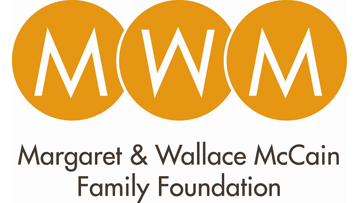To understand the role of preschool in public education, we must examine its impact on children's academic, social, and emotional development. Preschool also supports working parents, improves access to quality early learning, ensures continuity in education, and helps reduce social inequities.
Synthesis PDF Complete topic PDFSynthesis
How important is it?
Access to high-quality preschool education is one of the most effective strategies for ensuring long-term academic and social success for children. When preschool is offered through the public school system, it provides equitable access to early education, strengthens academic outcomes, and maximizes societal benefits.
The significance of early childhood education, particularly preschool, has been extensively studied and documented. Research indicates that children who attend high-quality preschool programs experience substantial learning gains and are more prepared for school than those who do not. These benefits include improved early literacy, math skills, and social-emotional development.
Moreover, the advantages of preschool education extend beyond immediate academic gains. Long-term studies have shown that early childhood education can lead to higher educational attainment, increased earnings, and reduced criminal activity in later life. Longitudinal studies from the United Kingdom and the United States demonstrate that individuals who attended preschool had higher high school graduation rates and better socio-economic outcomes compared to those who did not attend preschool.
By integrating preschool into the public education system, these benefits can be extended to a greater number of children, particularly those from disadvantaged backgrounds who may otherwise miss out on early learning opportunities. Furthermore, models in Quebec and Ontario demonstrate that preschool education, when combined with child care, increases parents’ workforce participation and supports better work/life balance. For policymakers building preschool onto the foundation of public education provides efficiencies and accountability that are not found under private delivery.
What do we know?
Extensive research has provided valuable insights into the impact of preschool education. Studies have consistently shown that children who attend high-quality preschool programs exhibit better preparedness for school, enhanced cognitive abilities, and improved social skills. These early advantages often translate into long-term benefits, including higher academic achievement, increased likelihood of pursuing higher education, and better socio-economic outcomes in adulthood.
By delivering preschool through the public education system, these benefits can be made more widely available. Public school systems have existing infrastructure, trained educators, and a structured curriculum that ensures quality and consistency. The Abecedarian Early Intervention Project, a controlled study initiated in the 1970s, revealed that participants who received early educational intervention had higher IQ scores, better academic performance, and were more likely to attend college compared to those who did not receive such intervention. These findings underscore the importance of a publicly funded and regulated preschool system that ensures all children, regardless of their economic background, have access to early education.
Furthermore, studies by the National Institute for Early Education Research found that investments in early childhood education bolster student success and have positive impacts on children's early literacy, math, and social-emotional skills. When preschool is part of the public education system, it creates a seamless transition into kindergarten and elementary education, reducing gaps in learning and increasing continuity in instruction.
What can be done?
To harness the benefits of early childhood education, it is imperative to implement policies that make high-quality preschool universally accessible through the public school system. This includes increasing public funding for early childhood programs, ensuring that preschool education is integrated into K-12 education, and maintaining high standards for curriculum and teacher qualifications.
Investing in early childhood education through public schools yields significant returns. Economic evaluations highlighted that early interventions, especially with disadvantaged children, have produced a variety of positive results, including higher school achievement and reduced need for special education later. When preschool is integrated into the public school system, children benefit from the same trained educators, structured learning environments, and accountability measures that ensure high educational standards.
Additionally, expanding access to preschool within public schools can help bridge the educational achievement gap between children from different socio-economic backgrounds. Universal preschool programs have been shown to boost low-income children's reading scores more effectively than targeted preschool programs, suggesting that a fully integrated public school-based preschool system is more productive in promoting educational equity.
In conclusion, offering preschool through the public education system is not only a matter of educational policy but also a strategic investment in the future of society. By ensuring that all children have access to high-quality early education within the public school system, we lay the foundation for a more educated, equitable, and prosperous society.
Discover more

What are the benefits of integrating preschool into public education?
Research underscores the growing importance of early childhood education and the benefits of incorporating preschool into the public system. This integration:
- Establishes a seamless learning progression, enhancing long-term educational outcomes.
- Strengthens children's academic and social-emotional development.
- Expands access for vulnerable children, promoting equity.
- Reduces costs and increases affordability for families.
- Provides better access to educational resources, support services, and learning materials.
- Enables more caregivers—especially mothers—to participate in the workforce.
On a policy level, investing in preschool within the public education system yields significant long-term social and economic benefits by ensuring better outcomes for all children.

Resources and bulletins
The Encyclopedia also recommends...
Schools at the Centre: Findings from Case Studies Exploring Seamless Early Learning in Ontario
This study examines the impact of Full-Day Kindergarten and extended-hours programming on educators, families, and early years administrators across three Ontario regions, highlighting lessons to inform policy and practice.
Evaluation of the Pre-Primary Program and Early Years Centres
Researchers from Dalhousie and Mount Saint Vincent Universities evaluate Nova Scotia's Pre-Primary Program and Early Years Centres, assessing implementation, impact, effectiveness, and areas for improvement.
Full-Day Kindergarten Moving Ontario Forward
This report by the Elementary Teachers' Federation of Ontario discusses the benefits of Full-Day Kindergarten, emphasizing its alignment with international standards and its role in supporting early childhood development.
Benefits to Expanding Public School Early Learning and Child Care
Economist Craig Alexander explores the economic and social benefits of expanding early learning and the challenges of universal access through licensed care, advocating for integration with the public school system.
The Toronto First Duty (TFD) model integrates kindergarten, child care, and parenting support, giving parents access to full community services. It also serves more children at the same cost as separate programs.
Within- and Between-Sector Quality Differences in Early Childhood Education and Care
This study suggests that public prekindergarten programs generally have more rigorous standards and offer a higher quality learning experience than centre-based programs, which might mean that public programs have larger effects that persist over time.
The Persistence of Preschool Effects from Early Childhood through Adolescence
Published in the Journal of Applied Developmental Psychology, this study finds that children who attended preschool consistently outperformed peers in achievement tests up to early adolescence, though they exhibited less optimal psychosocial skills.
What Does the Research Really Say About Preschool Effectiveness?
The Learning Policy Institute summarizes research indicating that preschool attendance enhances school readiness, reduces the likelihood of special education placement, and decreases grade retention rates.
Investing in Our Future: The Evidence Base on Preschool Education
This report highlights that large-scale public preschool education is a profitable investment, with benefits outweighing costs through improved educational and social outcomes.
Why doesn’t Canada let schools provide child care?
This article in the Conversation Canada reviews early childhood programs in Canadian and international settings.
The Miracle of Universal Pre-K
An article in New York Magazine detailing New York City's successful implementation of universal pre-kindergarten and its positive outcomes.
The Guardian view on Sure Start's legacy: investing in children brings rewards
This piece discusses the UK's Sure Start program, emphasizing how early investment in children's services leads to improved educational performance and reduced crime rates.
Children gain learning boost from two-year, full-day kindergarten
This piece in the Conversation Canada describes the impact of Full Day Kindergarten on four- and five-year-old children in the Ontario.
Schools at the Centre video series
This video series examines the impact of seamless day preschool on educators, families, and administrators in three Ontario regions, highlighting key partnerships and lessons to inform policy and practice.
The Long-Run Benefits of Public Preschool
This video discusses research on the enduring positive impacts of public preschool programs on human capital and economic outcomes.
Why is a Preschool Education Important? | Ask the Expert"
An expert explains the critical role of early childhood education in brain development and its long-term benefits.
Seven benefits to expanding preschool programs in public school
Dr. David Philpott presents the advantages of expanding public preschool programs, including the economic and social benefits.
Is Full-Day Kindergarten a Success? | The Agenda
This video provides an in-depth discussion on the outcomes of more than a decade of Full-Day Kindergarten in Ontario, evaluating its effectiveness and addressing initial concerns.
Full-Day Kindergarten Report - Dr. Gordon Cleveland
In this presentation, Dr. Gordon Cleveland introduces his research report titled "Ontario's Kindergarten Program: A Success Story," detailing the benefits and successes of the program.






